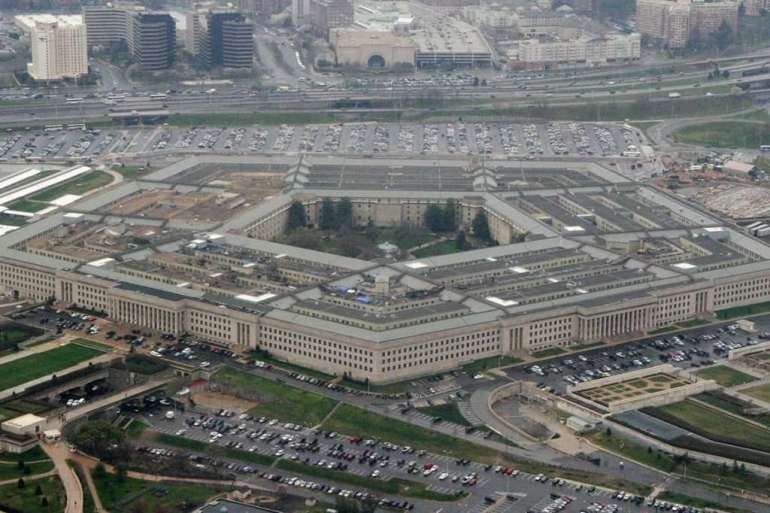Head of Pentagon’s ‘SWAT team of nerds’ stepping down

Goldstein’s departure comes as the Biden administration and Capitol Hill scramble for ways to keep a technological edge over foreign competitors, especially China. DDS, which reports directly to the secretary of Defense, will be instrumental in developing new technologies and approaches that better safeguard DoD’s networks and personnel, in cyberspace and on the battlefield.
“I quickly realized that serving as DDS Director would be the most important job I’d ever have,” said Goldstein, who previously served as a special adviser to the Navy and Joint Special Operations Command.
His successor will inherit a DDS that Goldstein pushed to leapfrog other parts of a sprawling department with entrenched bureaucracy, at times sparking internal clashes.
It was not immediately clear who might be under consideration to permanently run the unit — established in 2015 to solve the department’s thorniest IT problems — with its main hub in a Pentagon conference room sporting a placard on the door that reads “Rebel Alliance” (just one of the many “Star Wars” references that have become part of the DDS brand over the years).
Both Goldstein and his predecessor came from civilian tech backgrounds. Goldstein, for example, was Chicago’s first-ever chief data officer, and one of the first employees at OpenTable, the restaurant reservation site.
One possible successor could be Olson, who currently works on climate and ongoing security projects. She joined DDS in 2019 as chief of staff and was promoted to the unit’s No. 2 spot in early 2020. Olson has focused on incorporating counterdrone operations into the DDS portfolio and creating a digital database for DoD’s collection of pathology specimens — the world’s largest.
Under Goldstein, DDS expanded its portfolio beyond software and so-called bug bounty programs like the “Hack the Pentagon” to include projects ranging from support for pandemic-fighting units to developing a biometric app to help Army soldiers on the battlefield distinguish between fellow soldiers and enemies.
DDS played a key role in efforts to protect coronavirus research from hackers. That work also gave the unit momentum to launch “Project Groot” (after a character from Marvel’s “Guardians of the Galaxy” movies), fixing a long-standing vulnerability that had allowed Defense department emails to outside parties travel the internet unprotected against snooping.
The unit also created a Covid-19 symptom-tracking app for crews on aircraft carriers that was then adopted across multiple service branches, and provided drone-monitoring technology to track amateur drones that buzzed Navy hospital ships dispatched to New York and Los Angeles to help with surges in coronavirus patients.
“We contributed to securing and delivering a safe vaccine and triaging infections across the Navy and Air Force with software,” Goldstein said.
But as he expanded DDS operations, Goldstein also had to navigate friction with other parts of the Pentagon.
The unit’s very existence has created a continuing sense of unease among some civilian leaders and military brass, who view DDS as overkill to the work being done by cyber warriors in the military branches.
Its projects have also sometimes created strife within the monolithic department. For “Project Groot,” Goldstein had to enlist DoD’s CIO to cut through layers of red tape and ensure the fix went through. A recent effort to secure IP addresses around Inauguration Day sparked a wildfire of online conspiracy theories by supporters and critics of former President Donald Trump over its timing.
Yet its unconventional ways have garnered bipartisan praise from Capitol Hill lawmakers and some top military officials.
“I am personally a huge fan of DDS,” Marine Corps Lt. Gen. Dennis Crall, a senior member of the Joint Staff, told the Senate Armed Services Committee’s Personnel subpanel last month. “They approach problems in a nonconventional way. They’re not intimidated by rank, structure, hierarchy,” he added. “They don’t look like us. They don’t act like us.”
As a result, he said, “they operate at much greater speed.”
Crall’s endorsement prompted subcommittee chair Kirsten Gillibrand (D-N.Y.) to request more details about DDS — including the salary range it offers — in order “to know if we should replicate it” elsewhere within in the Pentagon’s digital workforce or “augment it or make it bigger than it is today.”
DDS did grow considerably under Goldstein’s watch, going from about 30 people to more than 80. Women were also promoted to key leadership roles — deputy chief, military liaison, and heads of data science, engineering, and design guilds — and minorities now make up about 30 percent of the team, according to figures provided by DDS.